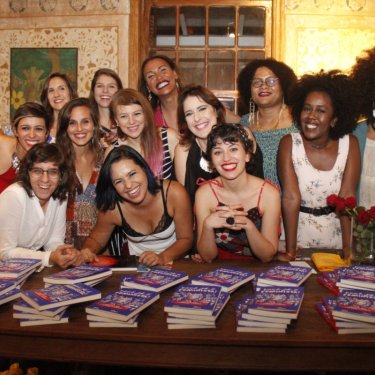Brazilian website for women targeted after report on abortion

Reporters Without Borders (RSF) condemns a wave of threats and verbal attacks against the staff of AzMina – a Brazilian online newspaper run by women journalists fighting for gender equality – after it published a report on abortion. Pluralism and freedom of opinion are increasingly threatened in today's Brazil, RSF says.
Posted on 18 September and entitled “How to abort safely,” AzMina’s report used World Health Organization recommendations to advise women how to carry out a safe abortion in Brazil (where abortion is illegal).
Within hours of its publication, AzMina was being targeted on social networks with threats, insults of a sexual nature, incitement to violence and calls for an online hate campaign known as a “virtual lynching.”
Coming mostly from anti-abortion groups and prominent members of the conservative right, the attacks were relayed by federal parliamentarians affiliated to President Bolsonaro’s party, the PSL, and above all by Damares Alves, the minister of human rights, family and women, who accused AzMina on Twitter of “condoning crime” and filed a complaint with the prosecutor’s office.
AzMina’s staff told RSF that, as well as the online threats and harassment, the address of their São Paulo headquarters and the address, photo and tax identification number of the report’s author had been posted on Twitter (which subsequently deleted them). AzMina’s management has filed a complaint about these attacks and is awaiting a response from the authorities.
“We support the staff of AzMina and call on the Brazilian authorities to investigate and identify those responsible for these serious threats,” said Emmanuel Colombié, the head of RSF’s Latin America bureau.
“It is moreover unacceptable that representatives of the state should participate in online reprisals of this kind. In Brazil, as elsewhere, elected representatives and members of the government have a duty to guarantee freedom of expression and the safety of journalists, not to incite hatred and stigmatize them.”
A feminist collective founded and run solely by women, AzMina campaigns for gender equality, covers women’s rights and provides very extensive (and critical) reporting on all kinds of violence against women in Brazil. It also provides training and organizes debates throughout the country.
The attacks on AzMina, like those on The Intercept Brasil, are symptomatic of the difficulties encountered by journalists covering sensitive and divisive subjects in Brazil, where campaigns of harassment and intimidation against the media have become more frequent and intense since Jair Bolsonaro took over as president in January.
Brazil is ranked 105th out of 180 countries in RSF’s 2019 World Press Freedom Index, three places lower than in 2018.



